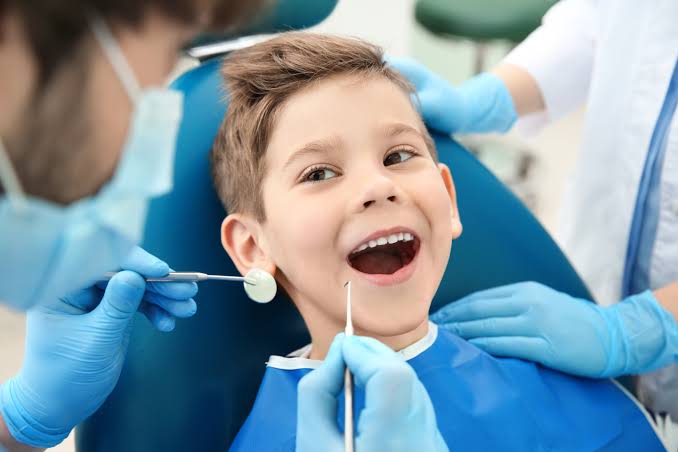Pediatric dentistry, also known as pedodontics, is a specialized branch of dentistry focused on providing oral healthcare to infants, children, adolescents, and individuals with special needs. Pediatric dentists are specially trained to address the unique dental and behavioral needs of young patients, aiming to ensure their oral health and development from infancy through the teenage years. Here are key aspects of pediatric dentistry:
- Specialized Training: Pediatric dentists undergo additional training after dental school to specialize in the unique needs and concerns of children’s oral health. This training includes child psychology, growth and development, behavior management, and specific dental treatments for children.
- Age-Appropriate Care: Pediatric dentists provide age-appropriate dental care and education tailored to children of different ages, from infants to teenagers, to promote good oral hygiene habits and preventive measures.
- Preventive Dentistry: Prevention is a key focus in pediatric dentistry. Dentists emphasize regular check-ups, cleanings, fluoride treatments, and sealants to prevent dental cavities and other oral health issues.
- Early Intervention: Pediatric dentists can identify and intervene early for any dental problems, including misaligned teeth, bite issues, or thumb-sucking habits, to prevent more severe issues later in life.
- Behavior Management: Pediatric dentists are skilled in managing the behavior of young patients during dental visits, ensuring a positive and comfortable experience to minimize fear and anxiety associated with dental treatments.
- Oral Health Education: Pediatric dentists educate children and parents about proper oral hygiene practices, including brushing, flossing, diet, and the importance of regular dental check-ups.
- Preventive Orthodontics: Pediatric dentists monitor the growth and development of a child’s teeth and jaw and may recommend early orthodontic evaluations to identify potential alignment issues.
- Child-Friendly Environment: Pediatric dental offices are designed to be child-friendly, with colorful and welcoming decor, toys, and an environment that helps children feel at ease during their dental visits.
- Sedation and Anesthesia: Pediatric dentists are trained in administering sedation or anesthesia when necessary to ensure a safe and comfortable experience for young patients during dental procedures.
- Treatment of Dental Conditions: Pediatric dentists treat common childhood dental issues such as cavities, gum disease, tooth decay, dental trauma, and dental emergencies.
- Special Needs Dentistry: Pediatric dentists are equipped to provide dental care for children with special needs, including those with physical, mental, or developmental conditions.
Regular visits to a pediatric dentist are essential to monitor a child’s oral health, address any concerns early, and instill good oral hygiene habits from a young age. The goal is to promote a lifetime of good oral health and ensure a positive attitude towards dental care.


